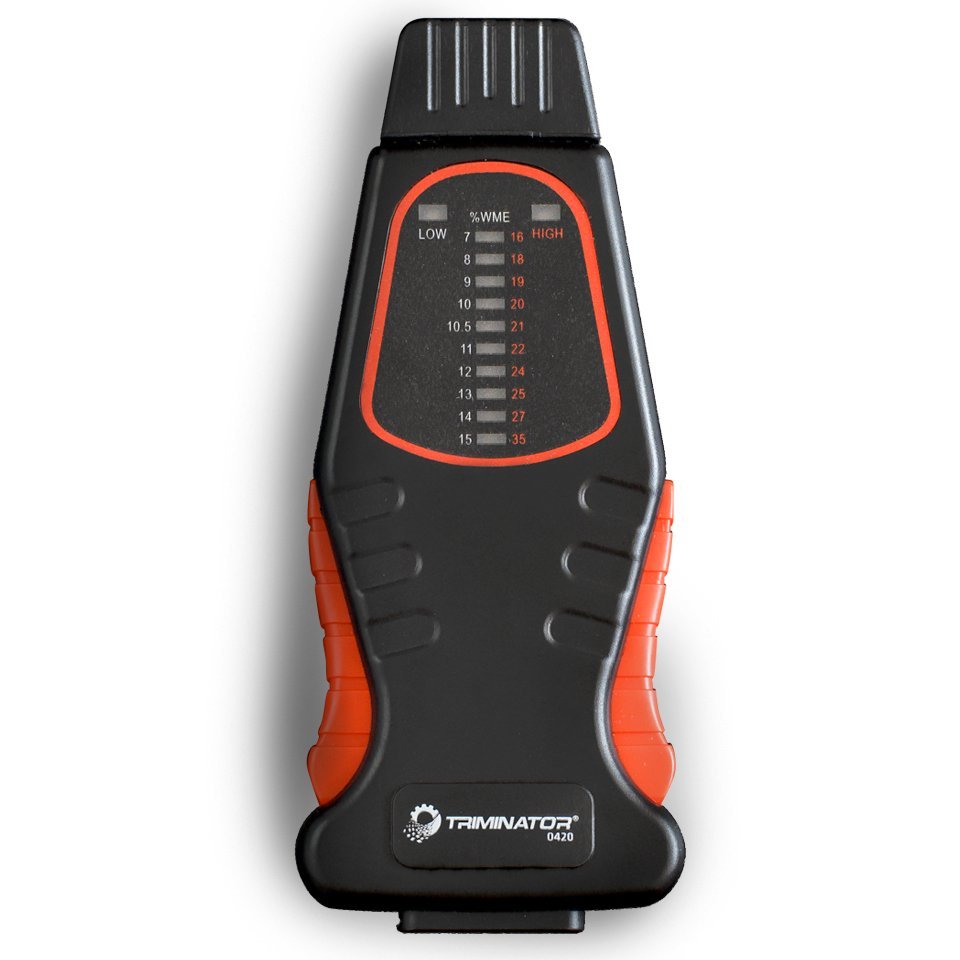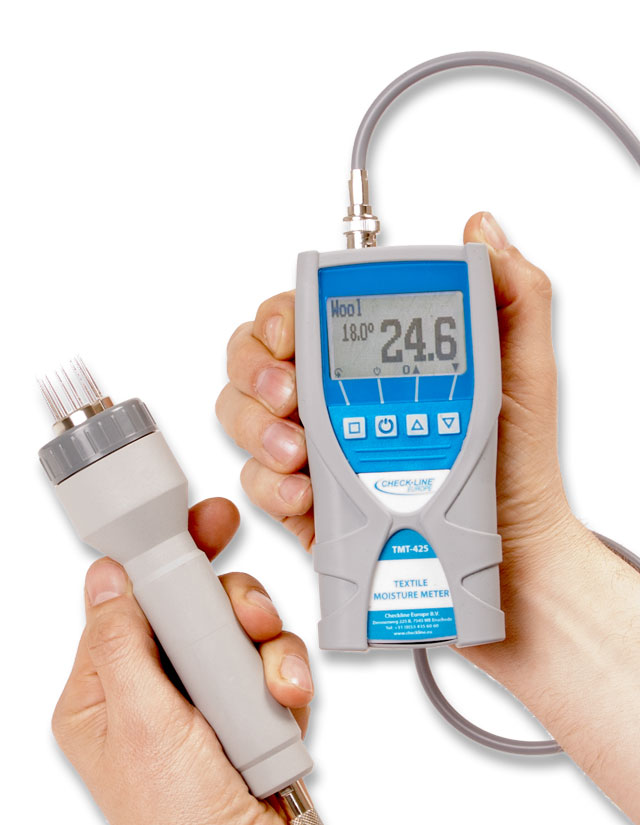Moisture Meter Reviews: Comparing the Best Versions for Specialist and DIY Usage
Moisture Meter Reviews: Comparing the Best Versions for Specialist and DIY Usage
Blog Article
The Ultimate Guide to Moisture Meters: A Comprehensive Overview and How They Can Conserve You Cash
In the world of structure maintenance, building, and different industries, the significance of properly determining moisture degrees can not be overemphasized. Wetness meters serve as important tools in discovering and keeping an eye on moisture content in products, assisting in protecting against pricey damages and guaranteeing the quality of items. Comprehending the nuances of various sorts of moisture meters, their applications, and the possible cost-saving benefits they offer can be a game-changer for specialists and services alike. Discovering just how these devices can not only enhance processes yet likewise contribute to economic savings is a trip worth beginning on.
Sorts Of Moisture Meters
One typical kind is the pin-type moisture meter, which determines the electric resistance between 2 pins inserted into a material. Pinless dampness meters, on the other hand, usage electro-magnetic sensor plates to scan a larger location without triggering damages to the material's surface.
Infrared moisture meters measure the thermal residential properties of a product to identify its dampness material non-invasively, making them beneficial for applications where pin or pinless meters may not be suitable. Understanding the various kinds of moisture meters readily available can aid markets choose the most appropriate tool for their certain wetness measurement demands.

Advantages of Utilizing Moisture Meters

Furthermore, making use of moisture meters can result in enhanced power efficiency. By determining locations with high moisture levels, such as leakages or poor insulation, modifications can be made to enhance energy conservation and lower energy prices. In farming settings, moisture meters play an essential role in maximizing plant returns by making it possible for farmers to check soil dampness degrees and make informed irrigation decisions. Overall, the benefits of making use of moisture meters extend throughout various sectors, giving cost-efficient remedies and promoting far better top quality control methods.
Exactly How to Pick the Right Moisture Meter
Selecting the suitable wetness meter includes taking into consideration vital variables such as product compatibility, measurement range, and calibration accuracy. When picking a dampness meter, it's vital to ensure that the meter appropriates for the details product you will certainly be testing. Various materials have varying electric homes that can influence moisture readings, so selecting a meter developed for your material is important for accurate outcomes. Furthermore, think about the measurement range of the moisture meter. Make certain that the meter can discover dampness degrees within the range needed for your applications. Calibration precision is one more critical variable to bear in mind (Moisture Meter). Go with a moisture meter with reliable calibration to guarantee specific and constant analyses. Some meters might call for routine calibration adjustments, so comprehending the calibration procedure is very important. By carefully assessing these factors, you can pick a moisture meter that fulfills your demands and supplies accurate dampness measurements for your jobs.
Proper Strategies for Moisture Meter Usage
To ensure exact dampness analyses and make the most of the performance of a wetness meter, employing appropriate methods is vital. When making use of a pin-type wetness meter, insert the pins or probes into the product being examined up until they make complete get in touch with. Ensure the pins are perpendicular to the surface to obtain the most precise reading. For pinless moisture meters, hold the tool flat versus the material and move it slowly to cover the whole location for an average analysis. It's important to calibrate the dampness meter according to the product being examined to boost precision. Take several readings across the surface area and typical them out for an extra trustworthy result. In addition, make certain that the product being tested is acclimated to the setting to avoid skewed analyses. Normal maintenance of the wetness meter, such as cleaning the pins or sensing unit, is likewise crucial to guarantee exact and regular readings. By complying with these correct strategies, users can rely upon their dampness meter to give credible moisture levels, helping in preventing costly damage or making sure high quality in numerous applications.

Price Savings Via Moisture Meter Applications
Exactly how can the strategic usage of dampness meters result in significant expense financial savings throughout numerous markets? Moisture meters play a crucial function in cost financial savings by preventing potential damages and making certain high quality control in various this hyperlink industries. In the farming industry, moisture meters aid in figuring out the optimum time for collecting crops, protecting against excess or over-drying dampness that can affect the last product's high quality. This accurate surveillance aids farmers avoid unneeded losses and optimize their yield.

In addition, in the food handling industry, wetness meters are important for keeping track of product quality and ensuring conformity with security regulations. By accurately gauging dampness material in foodstuff, manufacturers can stop wasting, keep quality, and lower waste, leading to substantial expense financial savings. On the whole, the calculated application of dampness meters is an important investment that can bring about considerable price decreases and enhanced efficiency across various sectors.
Conclusion
Finally, wetness meters are useful tools for measuring and identifying moisture degrees in numerous materials. By utilizing the appropriate dampness meter and complying with proper strategies, users can efficiently protect against costly damages brought on by excess wetness. Buying a high quality dampness meter can bring about substantial cost savings in the future by identifying prospective concerns at an early stage and making it possible for timely remediation. Ultimately, dampness meters are essential instruments for maintaining the honesty and longevity of products and frameworks.
Wetness meters serve as important devices in finding and monitoring moisture material in materials, helping in preventing pricey problems and guaranteeing the top quality of products. Infrared wetness meters gauge the thermal residential or commercial properties of a material to establish its moisture material non-invasively, making them valuable for applications where pin or pinless meters may not be suitable.Dampness meters use indispensable advantages in precisely keeping track of and assessing moisture levels in varied materials and atmospheres. In agricultural settings, moisture meters play a critical duty in enhancing plant returns right here by making it possible for farmers to keep an eye on dirt dampness levels and make notified irrigation choices.In verdict, moisture meters are important devices for detecting and gauging wetness degrees in numerous materials.
Report this page